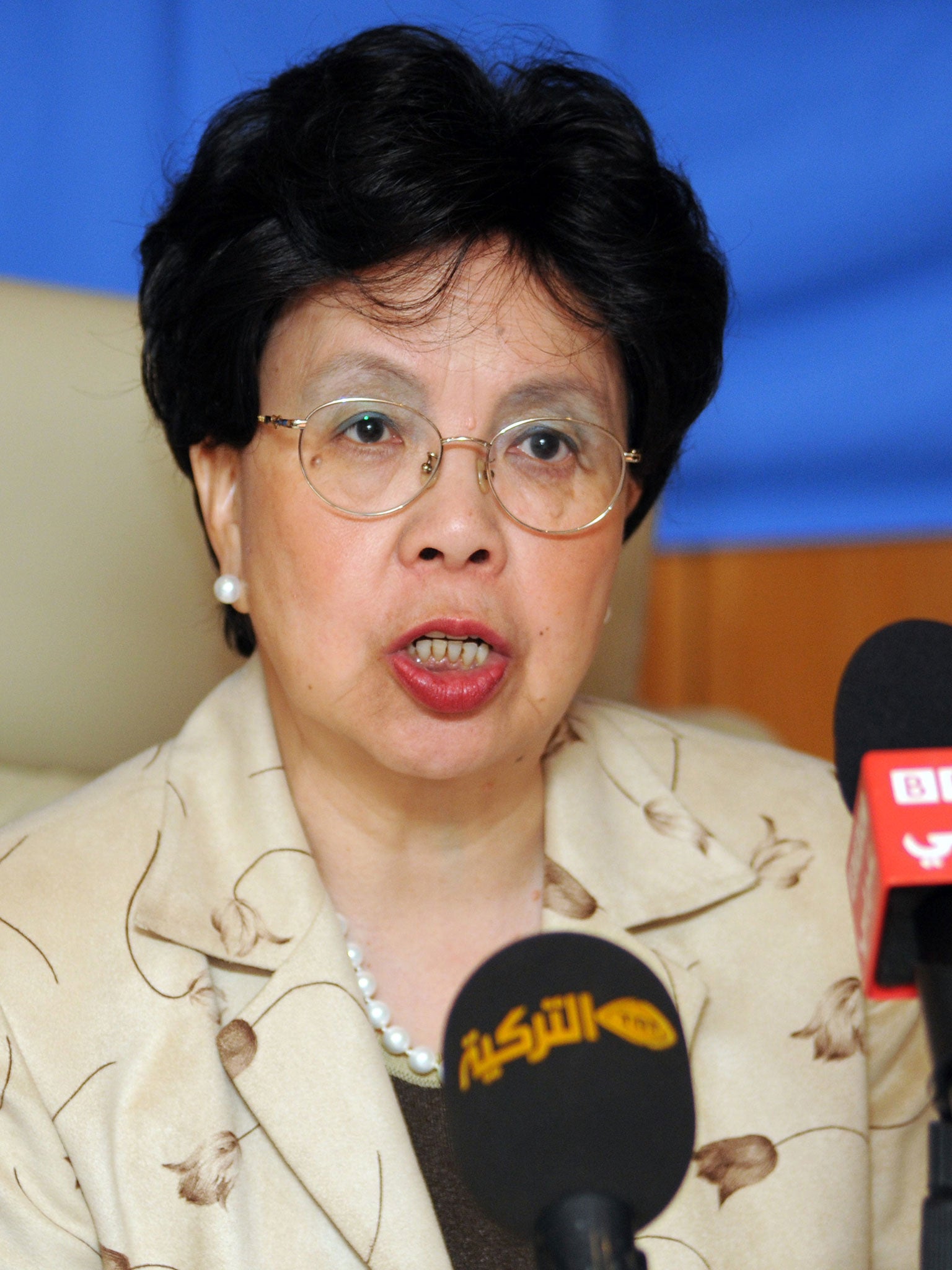WHO chief: Ebola vaccine was never developed 'because it only affected poor African countries'
Dr Margaret Chan hits out at profit-driven vaccine industry

There is still no Ebola vaccine 40 years after the disease first emerged because it previously affected only poor African nations, the head of the World Health Organisation has said.
In unusually strident comments, Dr Margaret Chan, the director-general of the WHO, attacked drug companies and said that the reason clinicians were “empty-handed” was because “a profit-driven industry does not invest in products for markets that cannot pay”.
She said that long-standing WHO complaints about the lack of investment in both vaccine development and the healthcare systems of poor states had “fallen on deaf ears for decades”. But the current global Ebola panic put the arguments “out there with consequences that all the world can see, every day, on prime time TV news”.
Speaking to the WHO’s regional committee for Africa in Benin, she said: “Ebola emerged nearly four decades ago. Why are clinicians still empty-handed, with no vaccines and no cure?"
She continued: “Because Ebola has historically been confined to poor African nations. The R&D incentive is virtually non-existent. A profit-driven industry does not invest in products for markets that cannot pay.”
In recent months several prototype Ebola vaccines have been rushed through development, a process which usually takes up to 10 years. But even the most promising will not have completed testing for safety and efficacy before the end of next year.
Nearly 5,000 people have died from Ebola in West Africa, and there are signs that the spread of the virus is still increasing in Sierra Leone, although it appears to be slowing down in the worst-hit country, Liberia.
Potential vaccines must first be tested for safety. The most promising candidate, GlaxoSmithKline’s ChAd3, is currently being tested at the Jenner Institute in Oxford, the National Institutes of Health in Maryland, USA and in Mali.
It has been funded by a £2.8m grant from the Wellcome Trust, the Medical Research Council and the UK Government. GSK has begun manufacturing additional doses ahead of the outcome of trials, with 10,000 doses potentially available by the beginning of next year. If proved safe, the efficacy of the vaccine will be tested by immunising healthcare workers combating Ebola in West Africa.
Trials of another promising vaccine, VSV, are due to take place in Europe, Gabon and Kenya. Developed by the Public Health Agency of Canada, a £3.1m grant from the Wellcome Trust will allow safety information to be gathered, with 800 vials of the vaccine donated by the Canadian government.
The virus was first discovered in 1976, and there have been more than 20 Ebola outbreaks since then. However, they have all been on a much smaller scale to the current epidemic, meaning that until now there had been little momentum behind efforts to develop a treatment or vaccine.
The failure of governments and the international pharmaceutical industry to develop one has led to calls for greater investment in vaccines for other rare but potentially dangerous outbreak diseases such as Marburg, Sars and Chikungunya.
Describing Ebola as “the most severe acute public health emergency seen in modern times”, Dr Chan said that there was “an urgent need to strengthen long-neglected health systems” in poorer states. The WHO has itself faced criticism for its allegedly sluggish response to the Ebola crisis, and the organisation’s regional office in Africa has been described as “not competent” by the co-discoverer of Ebola Professor, Peter Piot.
Join our commenting forum
Join thought-provoking conversations, follow other Independent readers and see their replies
Comments